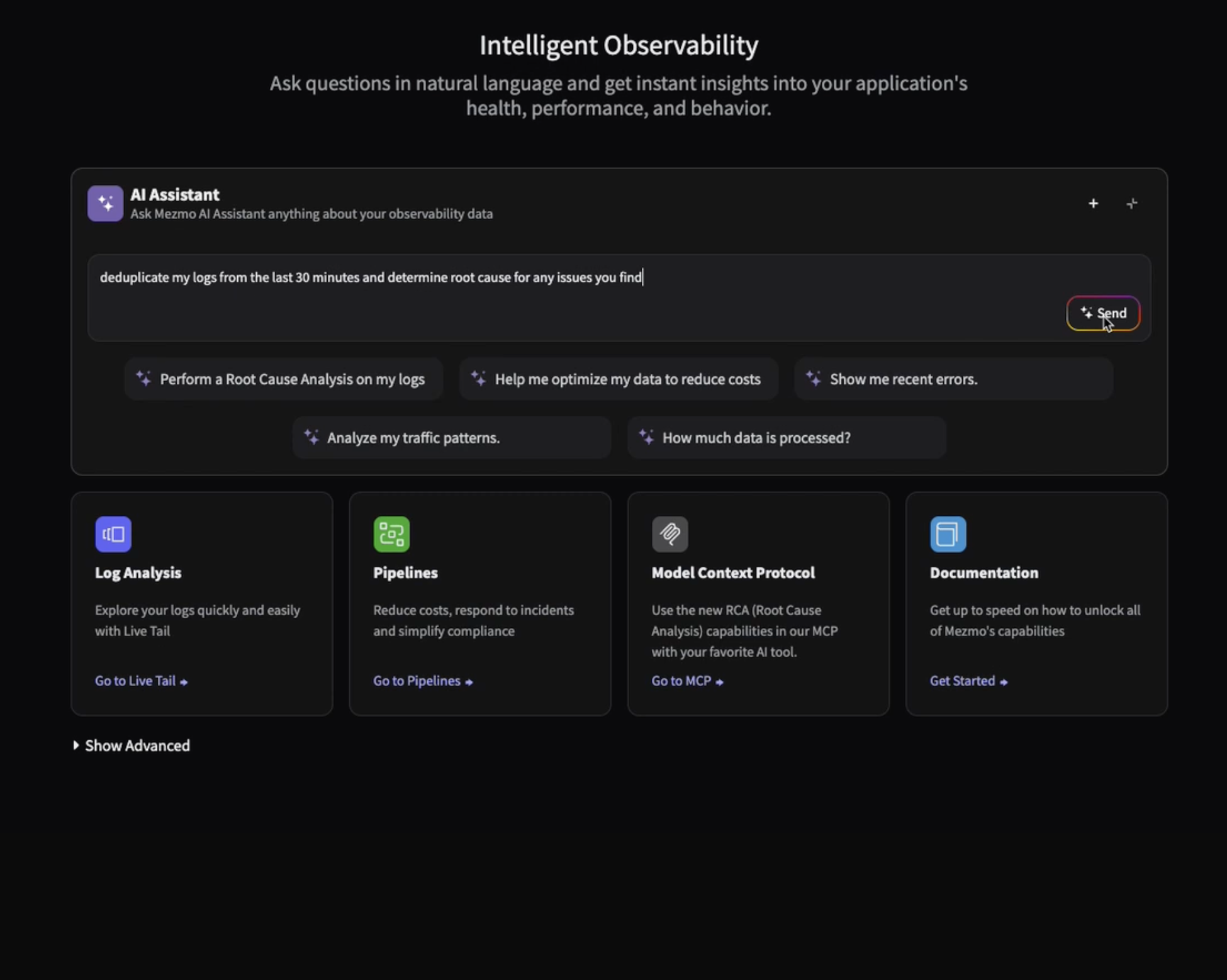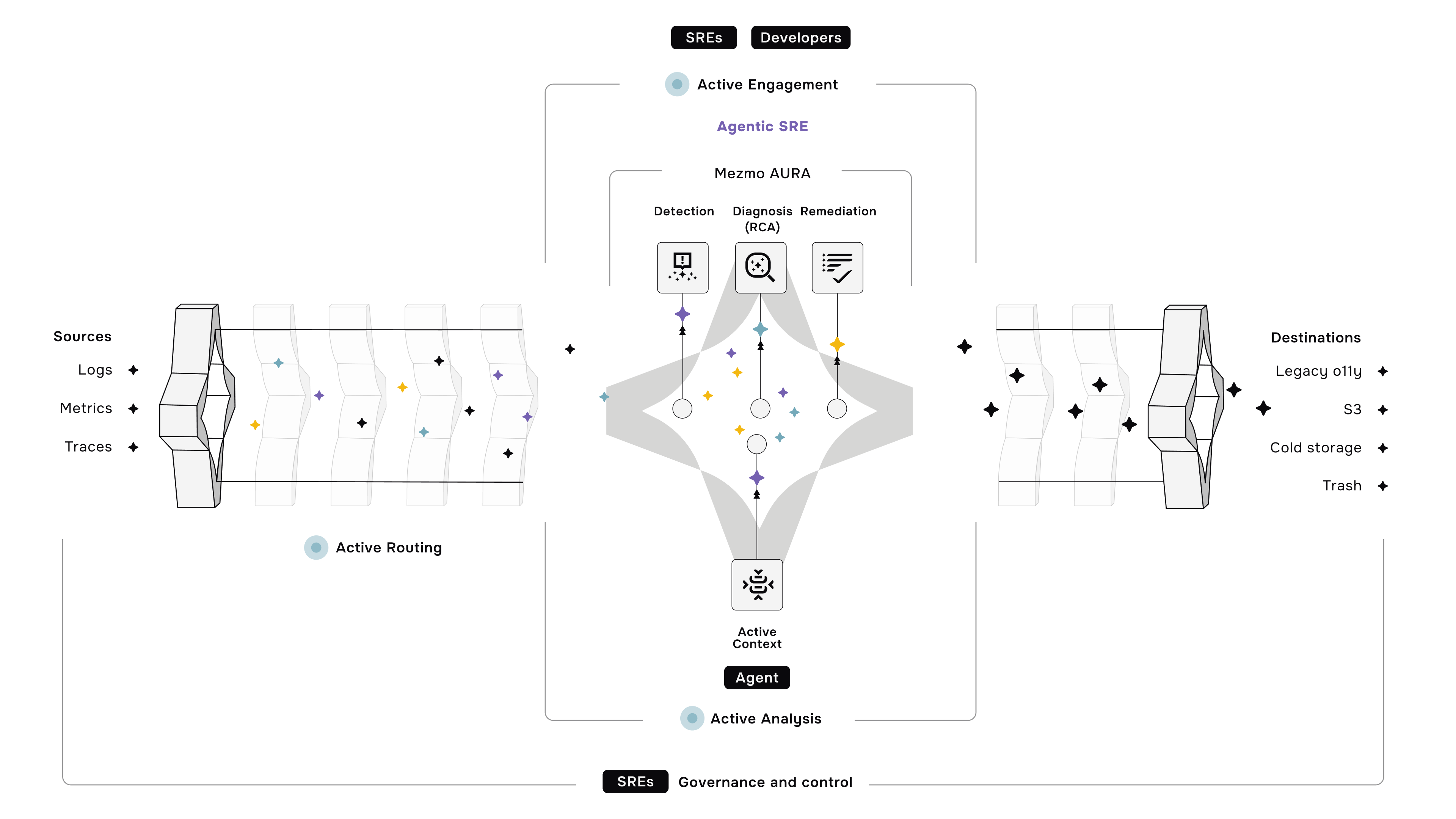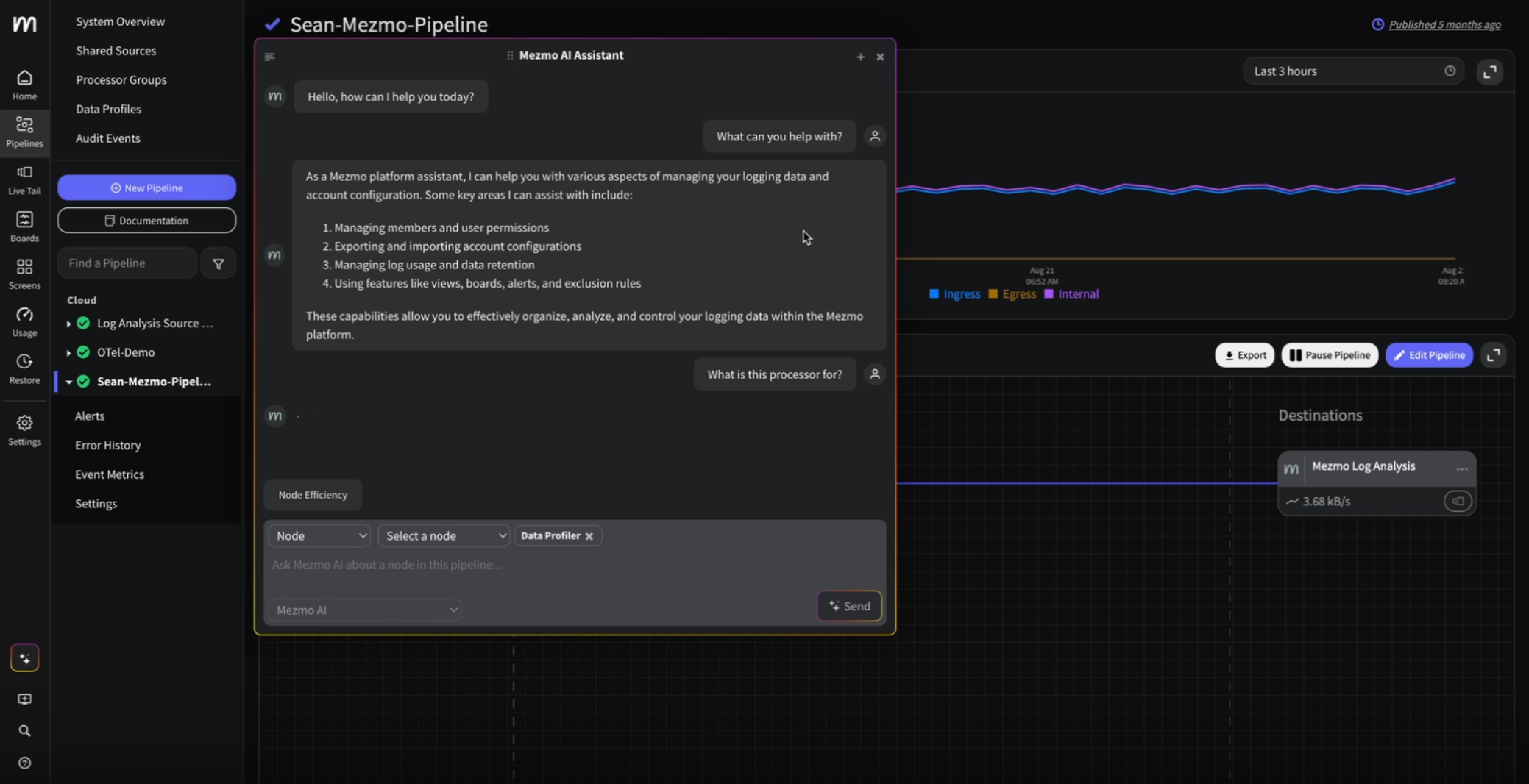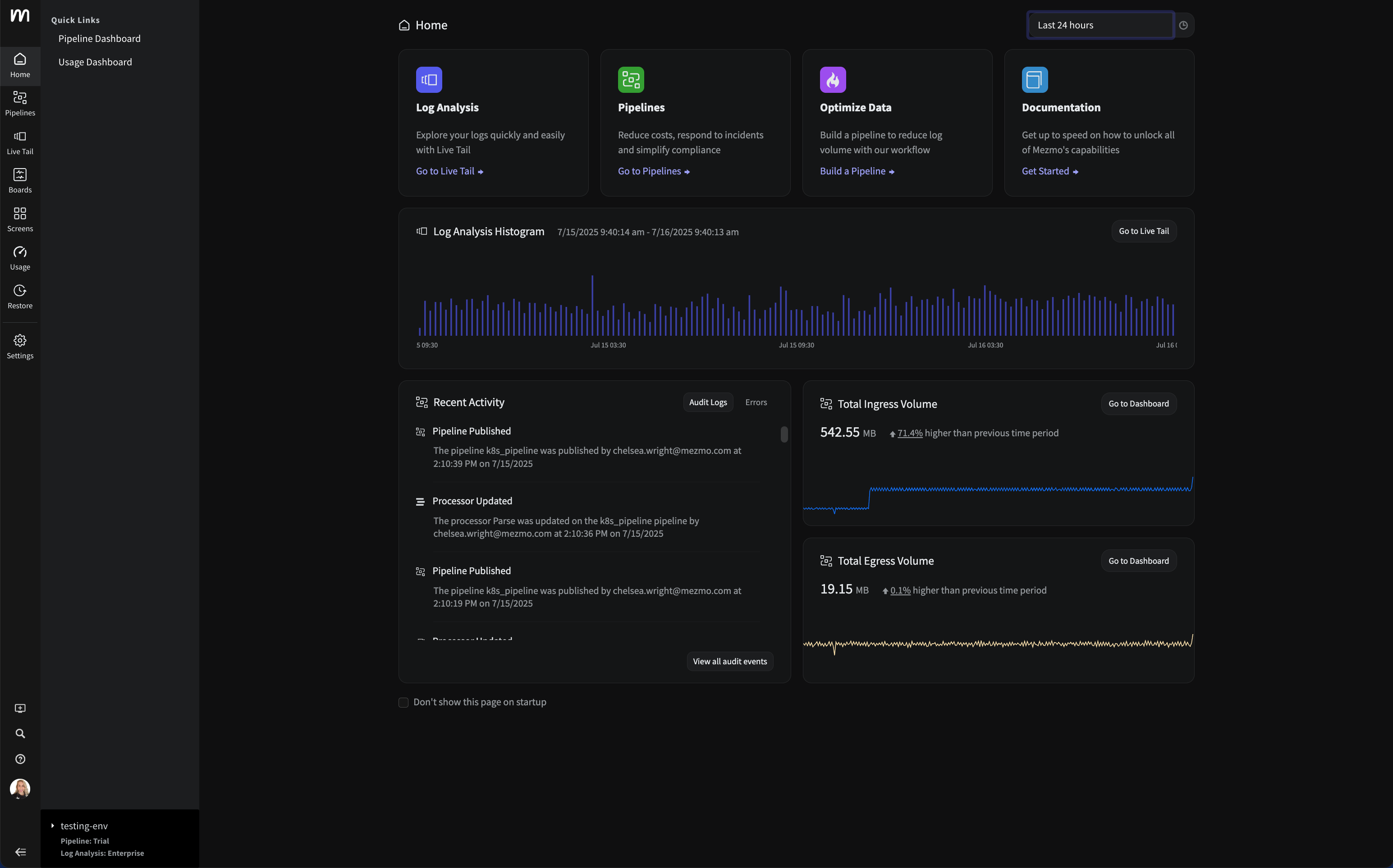Data-Driven Decision Making: Leveraging Metrics and Logs-to-Metrics Processors
In modern business environments, where everything is fast-paced and data-centric, companies need to be able to track and analyze data quickly and efficiently to stay competitive. Metrics play a crucial role in this, providing valuable insights into product performance, user behavior, and system health. By tracking metrics, companies can make data-driven decisions to improve their product and grow their business.
But how can businesses track and analyze these metrics effectively in the face of so much (and constantly increasing) data volumes?
In this blog post, we'll explore the importance of metrics and how logs-to-metrics processors can help businesses track and analyze their data.
Metrics vs Logs and Traces
Metrics, considered to be one of the Four Pillars of Observability, are a way of measuring a system's behavior over time. They differ from logs and traces in that they are aggregate measurements rather than detailed records of individual events. While logs and traces are valuable for debugging and troubleshooting, metrics provide a higher-level view of system performance that is more useful for understanding overall trends.
Metrics can be represented as a specific value for a parameter such as CPU utilization. Metrics can also be derived from logs using a logs-to-metrics processor. These processors analyze log data to derive metrics such as request latency, error rates, and throughput. This enables businesses to track and analyze their data at a higher level, providing insights into system health and user behavior.
The Observability Golden Signals
The Observability Golden Signals are a subset of metrics that provide the most critical information about system performance and user experience. These metrics are considered key because they represent the most critical aspects of a system's behavior:
- Latency: The time it takes for a system to respond to a request
- Traffic: The volume of requests a system is processing
- Errors: The number of requests that result in errors
- Saturation: The capacity and utilization of a system’s resources
By tracking these observability golden signals, businesses can gain valuable insights into how their product is being used, enhance scaling capabilities, refine user and system performance, and identify areas for improvement.
Logs-to-Metrics Processors
Logs-to-metrics processors are software tools that analyze log data to derive metrics. These processors work by applying parsing rules to log data to extract relevant information, such as application latency or response times. They then aggregate this information over time to generate metrics represented as time-series analytics.
Logs-to-metrics processors are essential for businesses for several reasons, including:
- More efficient way to track and analyze metrics than manual methods
- Provides insights into system performance and user behavior that would be difficult to obtain otherwise
- Helps businesses troubleshoot issues and errors quickly
- Enables businesses to optimize their product by identifying areas for improvement and making data-driven decisions to address them
- Gathering essential information from logs to reduce data overload and costs
Overall, logs-to-metrics processors provide a powerful tool for businesses to track and analyze metrics effectively. By utilizing these processors, businesses can gain valuable insights into their data, optimize their product, and make data-driven decisions to grow their business.
The Importance of Metrics
Despite the role metrics play in a company’s observability, there is an ongoing debate about whether or not metrics matter. Some argue that metrics are overrated and can lead to a culture of "analysis paralysis," where businesses become too focused on tracking data at the expense of making progress. On the other hand, advocates of metrics argue that they are essential for businesses to track and analyze their data effectively, enabling them to make data-driven decisions and optimize their product.
While it is true that metrics can be overused, we at Mezmo believe that metrics are crucial for businesses for several reasons:
- Metrics provide valuable insights into user behavior and system performance, enabling businesses to make data-driven decisions. By tracking metrics such as user engagement, retention rates, and conversion rates, businesses can gain valuable insights into how their product is being used and identify areas for improvement.
- Metrics help businesses set and track goals, ensuring that they are on track to meet their objectives. By identifying key performance indicators (KPIs) and setting targets for those metrics, businesses can track their progress and ensure they are making progress towards their goals.
- Metrics enable businesses to optimize their product by identifying areas for improvement and making data-driven decisions to address them. By tracking metrics related to user behavior, businesses can optimize their product to improve the user experience and drive better results.
- Metrics can also help businesses demonstrate the value of their product and build trust with their customers. By tracking metrics that matter to their users, businesses can show that their product is delivering results, users are more likely to continue using the product and recommend it to others.
Ultimately, while it is true that metrics can be overused, we believe that they are crucial for businesses to track and analyze their data effectively. By providing valuable insights, enabling data-driven decisions, helping businesses set and track goals, demonstrating the value of their product, and optimizing their product, metrics can help businesses achieve their objectives and stay ahead of the competition.
Both Logs and Metrics Matter for Business Success
Metrics are essential for businesses looking to improve their product and grow their company. By tracking metrics, businesses can gain valuable insights into user behavior, system performance, and product optimization. Logs-to-metrics processors offer a valuable tool for deriving metrics from log data, enabling businesses to track and analyze their data efficiently.
At Mezmo, we offer a telemetry pipeline that enables businesses to track and analyze their data quickly and efficiently. Our pipeline includes a logs-to-metrics processor that analyzes log data to derive metrics, enabling businesses to gain valuable insights into system performance and user behavior. With our pipeline, businesses can make data-driven decisions to optimize their product and grow their business.
With the Mezmo Telemetry Pipeline, businesses can take advantage of logs-to-metrics processors to gain valuable insights into their data and make data-driven decisions to grow their business.
Sign up for a free trial of Mezmo Telemetry Pipeline to see its power for yourself.












.png)
























.png)



































































